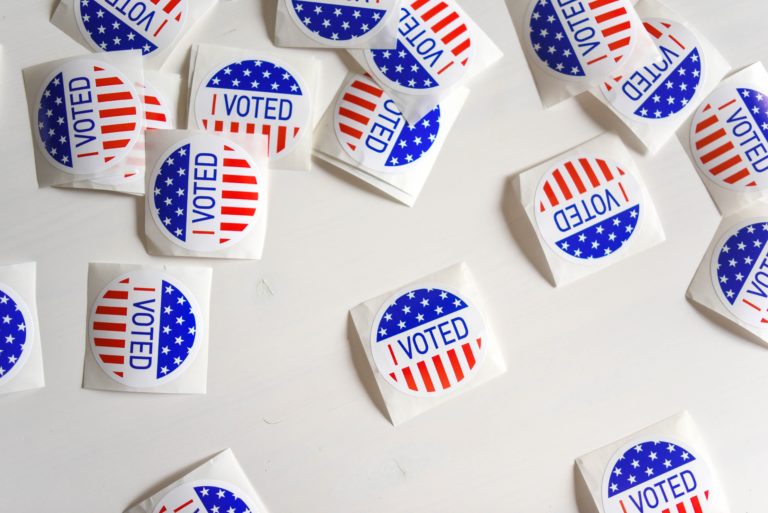In 2018, teachers across the nation went on strike in order to demand higher…
Motherhood on the Campaign Trail

Earlier this year, Rebecca Traister wrote a piece called “Mom vs. Dad on the Road to 2020.” Comparing how men and women on the campaign trail were approaching parenthood, she explained: “The tight knot for women in politics (and perhaps in life) has been, will always be, this: Everything associated with motherhood has been coded as faintly embarrassing and less than […] And yet to be a bad mom has been disqualifying, and to not be a mom at all is to be understood as lacking something: gravity, value, femininity.”
Despite sweeping societal changes, traditional gender roles remain powerful and impact what we perceive to be acceptable behavior for men and women. Barbara Lee Family Foundation research has shown that women candidates and elected officials with children pay a price with voters who worry about how women can manage it all. At the same time, voters wonder if candidates who do not have children can understand their lives. They acknowledge that our culture places different expectations on women and on mothers, but even as voters question the double standard, they still actively participate in perpetuating it.
With six women running for president, we have the opportunity this cycle to examine in real-time how voters respond to women in different family situations. Mothers of young children, mothers of grown children, grandmothers, step mothers, and women without children: we have examples of each currently running for president, and it’s worth pausing for a moment to reflect on just how history-making that is.
It wasn’t that long ago (as recently as 2008) that a candidate talking about her experiences as a daughter, a wife, a mother, or a grandmother on the campaign trail was rare. In 2018, we saw a record number of women run for office unapologetically as themselves rather than trying to fit into an outdated template, and a record number of women were successful. Women were truly 360-degree candidates, bringing the whole of their experiences to the campaign trail.
Already, we’re seeing this on the presidential stage. Kamala Harris is “Momala.” Elizabeth Warren remembers potty-training. Kirstin Gillibrand explains consent to her son. While speaking about their families gives women candidates the opportunity to connect with voters, our research shows that voters continue to have complex feelings have about their expectations of women on and off the campaign trail: “For women candidates and elected officials, the personal really is political.”






